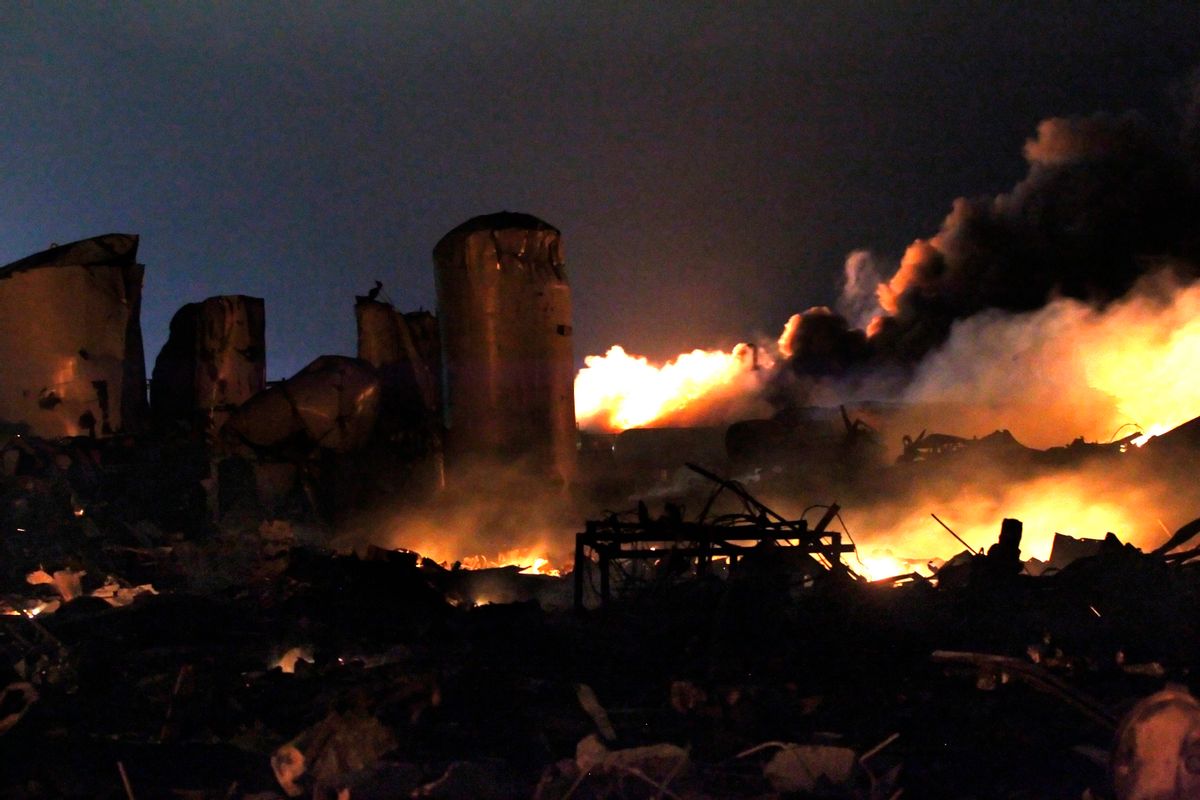If I told you that government officials possessed ironclad proof that an imminent threat to this nation had the capacity to create a 9/11's worth of injuries and deaths every year at an annual economic cost of a quarter trillion dollars, ask yourself: Would you say we should do something about it?
I'm guessing you would. Out of a basic sense of patriotism, you would probably at minimum support some new security regulations and investments in enforcing those regulations, even if that meant paying slightly higher taxes. After all, you profess to love America, and that's the least we should do in the face of such a threat to our country, right?
Now ask yourself: Would your response to the original query change if you discovered that the threat at hand was not from a terrorist, but from unsafe workplaces -- and that because of that unaddressed problem, these casualties and costs have already become a fact of life in America? Come on, admit it -- your response probably would change. Yes, many who would reflexively support more regulations and enforcement in the face of a foreign terrorist threat would suddenly scoff at more regulations and enforcement in the face of unsafe workplaces. Why the double standard?
That's the troubling question raised by the reaction -- or, really, lack thereof -- to last month's catastrophic explosion in West, Texas.
Occurring in the heart of a nation whose government data documents 4,500 workplace deaths every year at a cost of $250 billion, the deadly blast originated at a fertilizer plant that had not been inspected by the chronically underfunded Occupational Safety and Health Administration since 1985.
The location of the plant is particularly significant. As the New York Times reports, Texas promotes an "antipathy toward regulations" as "the only state that does not require companies to contribute to workers' compensation coverage" and a place where many counties "cite the lack of local fire codes as a reason for companies to move there."
As a result, Texas is not the nation's most populous state but nonetheless sports "the nation's highest number of workplace fatalities." When it comes to industrial disasters, the Times notes that Texas has only about a quarter more "high risk" sites than the state (Illinois) with the second most number of such facilities. However, it has, according to the Times, "more than three times the number of accidents, four times the number of injuries and deaths, and 300 times the property damage costs" as that state.
If all this data was about a terrorist threat, the reaction would be swift -- negligent federal agencies would be roundly criticized and the specific state's lax attitude toward security would be lambasted. Yet, after the fertilizer plant explosion, there has been no proactive reaction at all, other than Texas Republican Gov. Rick Perry boasting about his state's "comfort with the amount of oversight" that already exists.
So, again, why the discrepancy? Simply put, because this is what now passes for acceptable in a deregulated economy whose laws are written by corporate interests.
Those interests are hostile to safety regulation and enforcement because they don't want to spend even a tiny bit more on making worksites secure for employees. So they, and the politicians whose campaigns they fund, have made an epithet out of the word "regulation" in order to guarantee that almost nobody asks whether we have to tolerate 4,500 dead American workers each year.
We don't have to tolerate that level of workplace carnage, of course. There are many obvious and constructive things we could do, starting with adding resources to regulatory agencies and beefing up workplace enforcement. But if even a blast as big as the one in West, Texas, cannot make us realize that simple fact, then nothing will.

Shares